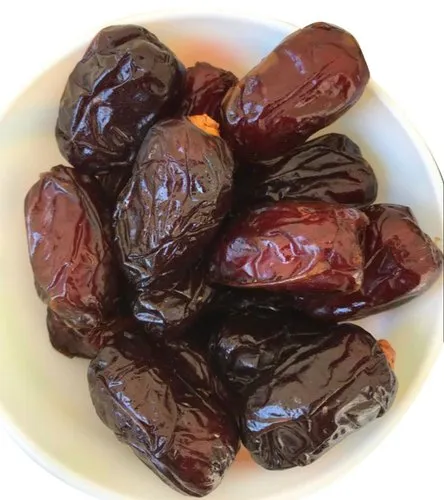The Malaysian Kurma Landscape

Kurma, also known as dates, are a delightful fruit cherished for their sweetness, religious significance, and health benefits. The popularity of kurma is on the rise in Malaysia, driven by factors like increasing health consciousness and cultural traditions. This blog post serves as your one-stop guide to navigating the Malaysian kurma landscape, exploring pembekal kurma (kurma suppliers), import trends, and valuable insights for informed choices.
Pembekal Kurma:
The concept of pembekal kurma in Malaysia goes beyond just a simple translation of “date supplier.” It encompasses the entire network of businesses involved in bringing date from farms around the world to Malaysian consumers. Here’s a deeper look at the concept:
- Suppliers: Pembekal kurma refers primarily to the companies that import and distribute dates within Malaysia. These companies can be large, established players with international connections, or smaller, newer suppliers focusing on specific niches.
- Sourcing: suppliers source their dates from various regions around the globe, depending on the variety, quality, and price point. Major date-producing countries like Egypt, Saudi Arabia, and Iran are common sources for Malaysian suppliers.
- Variety and Quality: suppliers offer a diverse range of date varieties, catering to different preferences and budgets. They may carry popular varieties like Ajwa and Medjool, or specialize in organic or ethically sourced dates. Some suppliers may also offer different quality grades, allowing customers to choose based on their needs.
- Distribution: suppliers distribute their products through various channels. They may sell directly to consumers through online platforms or physical stores. Additionally, they may supply kurma to supermarkets, wholesalers, and smaller retailers across the country.
The Evolving Landscape:
The concept of pembekal kurma is constantly evolving as the Malaysian kurma market grows. Here are some trends to consider:
- Increased competition: As demand rises, the number of date suppliers is increasing, leading to a more competitive landscape. This can benefit consumers by offering a wider variety and potentially lower prices.
- Focus on niche markets: Some pembekal kurma are catering to specific customer segments. This could involve offering organic, ethically sourced, or directly sourced dates.
- Integration with technology: Online platforms and mobile applications are playing a growing role in kurma sales, allowing date suppliers to reach a wider customer base and offer convenient purchasing options.
Malaysia’s Kurma Imports: A Global Connection
Malaysia’s insatiable appetite for kurma necessitates a global connection, as domestic production isn’t enough to meet the demand. Egypt, a powerhouse in date cultivation and export, takes the lead in supplying Malaysia with its bounty, including popular varieties like Barhee and Medjool. Saudi Arabia, the birthplace of revered kurma like Ajwa and Madinah dates, also plays a crucial role in fulfilling Malaysia’s kurma desires. Iran steps into the picture as well, contributing its high-quality Mazafati and Sayer dates to the diverse Malaysian kurma landscape. Through this intricate import network, Malaysia ensures a steady stream of various top-notch kurma varieties throughout the year, satisfying the needs of both religious tradition and health-conscious consumers.
Does Malaysia import a significant amount of dates to meet domestic demand? The answer is yes. Due to factors like limited local production and the desire for a wider variety of kurma, Malaysia relies on imports to fulfill its kurma needs. Here’s a look at some of the major kurma import sources for Malaysia:
- Egypt: A leading producer and exporter of dates globally, Egypt supplies a significant portion of Malaysia’s kurma imports. Egyptian varieties like Barhee and Medjool are popular choices.
- Saudi Arabia: The birthplace of some of the most revered date varieties like Ajwa and Madinah dates, Saudi Arabia is another major source of Malaysian kurma imports.
- Iran: Renowned for its high-quality dates like Mazafati and Sayer, Iran contributes to Malaysia’s diverse kurma landscape through imports.
By importing from these regions, Malaysia ensures a steady supply of various high-quality kurma varieties throughout the year.
Key Highlights:
- Pembekal kurma (date suppliers) in Malaysia come in various categories, from established giants to niche players.
- Malaysia imports a significant amount of dates to meet domestic demand, with Egypt, Saudi Arabia, and Iran being major import sources.
Conclusion
The Malaysian kurma market is an exciting and ever-evolving space. By understanding the different date suppliers and import trends, you can make informed choices when selecting dates that aligns with your preferences and needs. Whether you’re a casual consumer or a business looking for a reliable supplier, this guide has equipped you with the knowledge to navigate the delightful world of Malaysian dates.